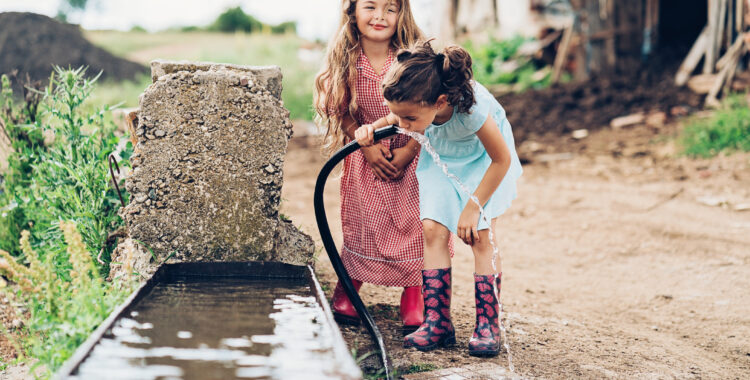“Education is the most powerful weapon which you can use to change the world.”
Nelson Mandela
The above quote by Nelson Mandela continues to enlighten us on the iniquities that can be resolved through education, but one important factor Mandela mentions is education’s power to address climate change and create a sustainable planet.
One of the connecting lines that runs through most stories related to climate change is that of the disaffected regions and vulnerable communities who tend to be even more affected by it. It’s usually areas with less economic resources that are disproportionately affected by climate change and the industries whose pollution is wreaking havoc on the environment.
Education has always been believed to be the route out of poverty, however, is it also the route out of climate disaster?
How Climate Change is Affecting Vulnerable Communities
“The impacts of climate change that we are feeling today, from extreme heat to flooding to severe storms, are expected to get worse, and people least able to prepare and cope are disproportionately exposed,” stated Michael Regan, the administrator of the EPA, in a report on its unequal impacts on socially vulnerable populations of the United States.
He adds that some “urgency of equitable action on climate change” is necessary.
There is already stark inequality across the United States, but recent reports on the effects of a rapidly changing climate on regions show that this divide is only going to be exaggerated in coming years to a near bottomless gap between the poor and the wealthy.
Poorer communities are currently suffering from more health problems than many others across the country. Pollution is only going to make this worse.
The fact that many disadvantaged communities do not have health insurance, and therefore cannot access medical aid or information, means they will not be capable of managing the increase in adverse health defects caused by rising temperatures and changes in rain patterns. Heart and lung disease, heatstroke, bacterial infections, and chemical poisoning are just at the beginning of the long list of sicknesses that are growing due to climate change and pollution.
The poorer communities of America are also at greatest risk as climate change induces natural disasters and extreme weather events.
Could Young People be the Solution?
UNESCO has put forth that education is essential to “help people understand and address the impacts of the climate crisis, empowering them with the knowledge, skills, values, and attitudes needed to act as agents of change.”
And empowerment of the young in vulnerable communities is exactly what’s needed. In the majority of the U.S., climate change is not taught or spoken about thoroughly enough or at all in the classroom. In fact, environmental science has senselessly become a political issue. A study produced by Edweek claimed that most teachers cannot find an applicable place to integrate conversations on climate into their subjects.
Maybe the climate crisis needs to be treated as a subject in and of itself?
For all young people and especially those most affected, the climate will probably shape their future a little bit more than Shakespeare. Even though literature is necessary for development, it may not be if children grow up and have no world in which to express themselves.
Education is necessary to give young people a better quality of life, and an understanding of how they can best protect the environment will best enable that.
Studying climate is of the utmost importance, so children become climate aware, develop skills that can improve their local and global environment, combat climate change, and be capable (especially vulnerable communities) of adapting to warming temperatures and serious environment change.
Columbia Climate School have found that 86% of teachers and 84% of parents wish to encourage climate change education. But that the young in the United States are not learning enough to have the skills and knowledge to deal with their inevitable future.
Connecticut and New Jersey are the two states leading the charge. New Jersey mandated the teaching of climate change from kindergarten, with a bonus of a $5 million grant. And, Connecticut have made it compulsory for children to learn about mankind’s effect on climate change in science classes. Let’s follow them!
Education is a weapon, a weapon for supreme good. And it should be the weapon used by the children of America to resolve the chasm of inequality and escape poverty. But also, to protect their communities and their planet from climate destruction.













